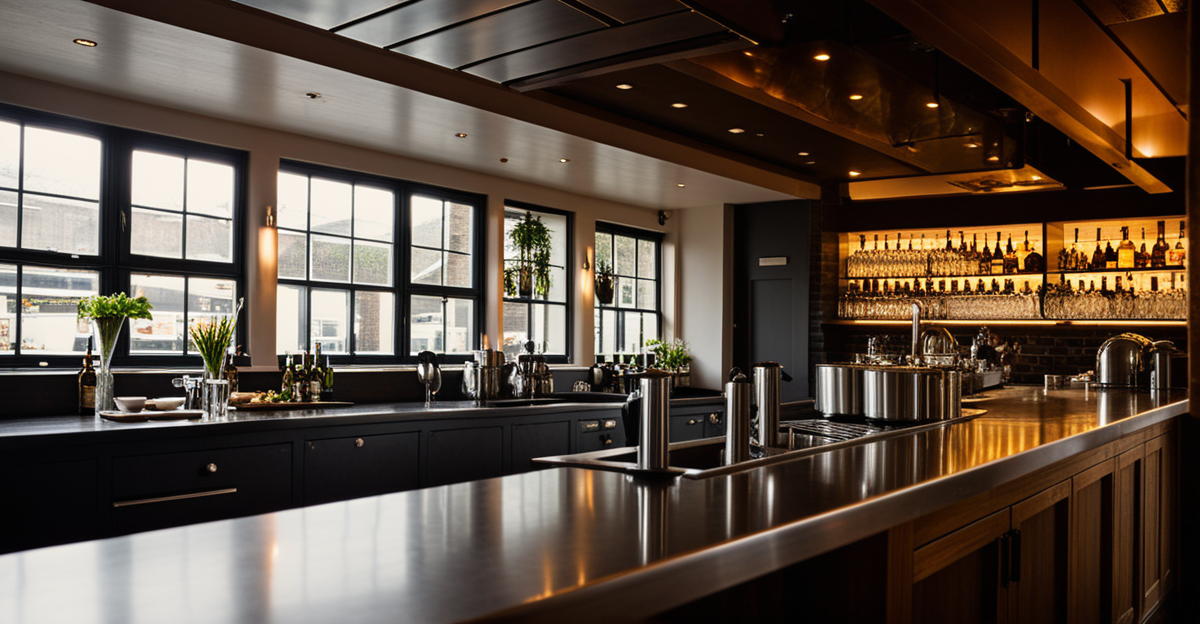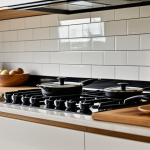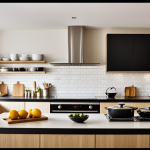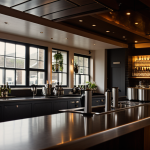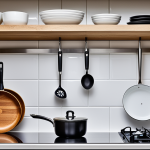Immediate Hidden Financial Commitments When Launching a UK Kitchen Restaurant Bar
Starting a kitchen restaurant bar in the UK comes with several hidden restaurant startup costs UK that can surprise new owners. One of the primary financial commitments involves securing the necessary licensing and permit requirements unique to UK food and alcohol businesses. These include alcohol licenses, health and safety certifications, and specific food hygiene permits, each carrying fees that vary by local councils and can add up quickly.
Planning permissions and change-of-use fees also present significant hurdles. Converting a space to hospitality use often requires compliance with stringent building regulations, necessitating costly adjustments during the fit-out phase. Ensuring the kitchen and bar areas meet fire safety, ventilation, and accessibility standards can unexpectedly inflate the initial expenses kitchen bar budgets.
Additional reading : How do UK kitchen bars ensure compliance with health regulations?
Refurbishment and bespoke design adaptations are common, often hidden under what might seem like minor upgrades. Structural reinforcements, plumbing, electrical rewiring, and specialized equipment installation are frequent contributors to escalating costs in the UK hospitality industry fees landscape.
Understanding and budgeting for these immediate, less-visible costs is crucial. Overlooking them can result in cash flow issues or delayed openings, impacting the broader success of a kitchen restaurant bar venture in the UK.
Topic to read : What Are the Key Challenges Facing UK Restaurants Today?
Ongoing Operational Costs Often Overlooked in Business Planning
Understanding ongoing restaurant costs beyond the launch phase is vital for financial stability. One major factor includes utility setup fees such as commercial gas, electricity, and water deposits. These can be substantial and vary greatly depending on the property. Connection charges and fluctuating energy costs add unpredictability, making budgeting complex.
Efficient waste disposal restaurant UK practices are another often overlooked expense. Contracts for waste management, including recycling compliance and food waste disposal, are mandatory under UK regulations. Failure to comply leads to fines and reputational damage, increasing long-term costs.
Repair and maintenance represent continuous financial commitments. Setting aside funds for equipment servicing, emergency repairs, and replacement guarantees smooth operation. This reserve fund is critical considering the high wear in kitchen and bar environments.
By anticipating these ongoing restaurant costs early, owners can avoid cash flow problems and maintain operational standards. Each element precisely fits into the broader UK hospitality industry fees landscape, ensuring no surprises derail the business during everyday running.
Ongoing Operational Costs Often Overlooked in Business Planning
Ongoing restaurant costs are often underestimated, yet they critically impact profitability. Commercial utility deposits and connection charges present hidden startup barriers. For instance, setting up gas, water, and electricity services involves not only regular bills but also initial utility setup fees, which differ across suppliers and locations. These costs can range from several hundred to thousands of pounds, depending on business size and energy requirements.
Waste disposal restaurant UK practices also carry recurring expenses. Efficient waste management contracts, including food waste segregation and recycling compliance, are mandatory and influence monthly outgoings. Proper disposal of cooking oils and perishable food waste requires specialised services, which add to these ongoing costs.
Energy usage fluctuates, further complicating budgeting for ongoing restaurant costs. Peak times, seasonal changes, and equipment usage patterns affect consumption, making it necessary to anticipate higher-than-expected bills in budgeting for UK hospitality industry fees. Establishing reserve funds for repairs and maintenance prevents disruptions but adds to the invisible operational commitments that must be planned for carefully to maintain smooth business operation without financial strain.
Legal, Regulatory, and Compliance Expenses Beyond the Obvious
Navigating UK restaurant compliance extends beyond licensing and permits, significantly impacting your budget through business insurance cost UK and mandatory inspections. Key insurances include public liability and employer’s liability, essential for protecting against legal claims and workplace risks. Expect to pay premiums reflective of your venue size and risk profile, making these costs a crucial part of the UK hospitality industry fees landscape.
Food safety regulations impose regular inspections by local authorities, with fees varying based on your establishment’s size and compliance history. Non-compliance can lead to fines or forced closures, so investing in compliance proactively reduces costly remedial actions. Fire safety inspections, similarly mandatory, ensure adherence to critical safety standards.
Beyond safety, GDPR compliance is vital, involving potential expenditures on data protection officers or secure IT systems. Music licenses for background entertainment and CCTV regulatory obligations also add to ongoing initial expenses kitchen bar. When budgeting, integrate these often-overlooked financial commitments early. They create a regulatory safety net, safeguarding your business’s reputation while aligning with UK legal standards.
Immediate Hidden Financial Commitments When Launching a UK Kitchen Restaurant Bar
Launching a kitchen restaurant bar incurs several hidden restaurant startup costs UK that can strain budgets. Key among these are licensing and permit requirements unique to UK food and alcohol businesses. Securing an alcohol license alone involves application fees, legal consultations, and waiting periods. Additionally, food hygiene certificates and health and safety approvals incur charges that vary regionally, aligning with UK hospitality industry fees structures.
Planning permissions and change-of-use fees form another significant expense. Converting premises to a commercial kitchen and bar demands compliance with building regulations—including ventilation, fire safety, and disability access—which often requires costly modifications or professional assessments. These permits often delay openings and add to initial costs.
Unexpected fit-out and refurbishment costs often surpass budgets. Requirements such as enhanced electrical wiring, bespoke plumbing, and reinforced flooring for heavy kitchen equipment contribute to rising initial expenses kitchen bar. Tailoring designs to meet both aesthetic appeal and regulatory standards further escalates costs. Careful foresight in these areas reduces financial shocks during launch, stabilising the critical early phase of operation.
Immediate Hidden Financial Commitments When Launching a UK Kitchen Restaurant Bar
Launching a kitchen restaurant bar in the UK involves numerous hidden restaurant startup costs UK beyond the obvious. Licensing and permit requirements for food and alcohol businesses vary locally, often incurring substantial fees. Many new owners underestimate the impact of change-of-use fees and planning permissions needed to convert premises, which are essential to comply with stringent building regulations.
These initial expenses kitchen bar projects also frequently escalate due to unforeseen fit-out and refurbishment demands. For example, ensuring proper ventilation, fire safety systems, and accessibility often requires structural modifications not included in original budgets. Electrical rewiring, plumbing upgrades, and bespoke kitchen installations add further costs to the complex UK hospitality industry fees landscape.
Understanding the depth of these commitments early helps prevent cash flow issues. Accurate forecasting should include inspections and compliance-related expenditures that typically arise just before opening. These hidden financial burdens significantly influence the feasibility and timing of launching a successful kitchen restaurant bar and should be incorporated into all initial financial plans.
Immediate Hidden Financial Commitments When Launching a UK Kitchen Restaurant Bar
Launching in the UK presents a maze of hidden restaurant startup costs UK that go beyond straightforward budgeting. The top immediate financial hurdle is navigating licensing and permit requirements unique to UK food and alcohol businesses. Alcohol licensing involves application fees and often legal advice, while health and safety certifications carry varied charges that fit within the broader UK hospitality industry fees framework. These are non-negotiable for legal operation and can delay your opening.
Securing planning permission and paying change-of-use fees related to converting a property for restaurant use can be unexpectedly costly. Compliance with UK building regulations demands adjustments in fire safety, ventilation, and accessibility, which lead to further expenses. These requirements significantly contribute to initial expenses kitchen bar, often underestimated by newcomers.
Finally, fit-out costs for kitchen and bar refurbishment frequently surpass initial estimates. Specialist electrical work, bespoke plumbing, and structural reinforcements are necessary to meet this sector’s rigorous standards. Tailoring the space to operational needs and aesthetic expectations amplifies these hidden restaurant startup costs UK, making thorough early financial planning essential.

